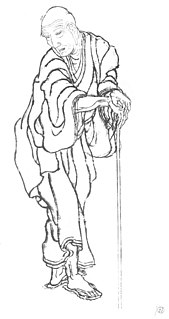A Quote by Gordon Quinn
Every ten years or so, I liked to do a film about an artist - this allowed me to reflect on our own work.
Related Quotes
The foreign audiences are somewhat surprised and happy to find an American film that asks questions about American culture. There's a certain kind of cultural imperialism that we practice. Our films penetrate every market in the world. I have seen and have had people reflect to me, maybe not in so many words or specifically, but I get the subtext of it - they're somewhat charmed and surprised and happy to see an American film reflect on our culture. Because they see other cultures reflect on our culture but they don't see US culture reflecting on itself in quite the same way.
For the first ten years after I got out of graduate school, I studied success. I read every book I could get my hands on and took every training I could find, and that allowed me to become an expert in this area. I learned how to create high self-esteem and success in my own life and in the lives of others.
An album for me as a teenager in the '70s was a fully formed concept. It was a body of work from an artist I liked or trusted or who excited me. Maybe one of the songs is really poppy and you listen to it on the radio as a hit single and then more of the world is about to find out about this artist by buying the record.
I have a general feeling that writers and artists who are in this peculiar situation, of being a persecuted artist, all anyone ever asks about is the persecution. It may well be that's the last thing in the world they want to talk about. There were many years in which every journalist in the world wanted to talk to me, but nobody wanted to talk to me about my work. That felt deeply frustrating because I felt there was an attempt to stifle me as an artist. The best revenge I could have was to write.
Artistic qualities that once seemed undeniable don't seem so now. Sometimes these fluctuations are only fickleness of taste, momentary glitches in an artist's work, or an artist getting ahead of his audience (it took me ten years to catch up to Albert Oehlen). Other times, however, these problems mean there's something wrong with the art.
Though I am born into a film family, I hardly had much exposure to shooting during my growing
years. My first film actually taught me about the breakdown of shots in a film. My aim is to do three
memorable roles in the next five years; films I can be really proud of. And I want to work with the best.
My teacher introduced me to this photographer Eugène Atget. He was a French photographer in the late 1800s up until 1927 in Paris. He didn't consider himself an artist, but he was probably one of the artists of the 20th century. This guy documented all of Paris during those years. It's unbelievable. The books are phenomenal. The Museum of Modern Art has all his stuff now and [American photographer] Berenice Abbott saved his work. Not very much is known about his life, but the work is unreal and it totally spoke to me. He was the only artist for a number of years that I cared about at all.





































